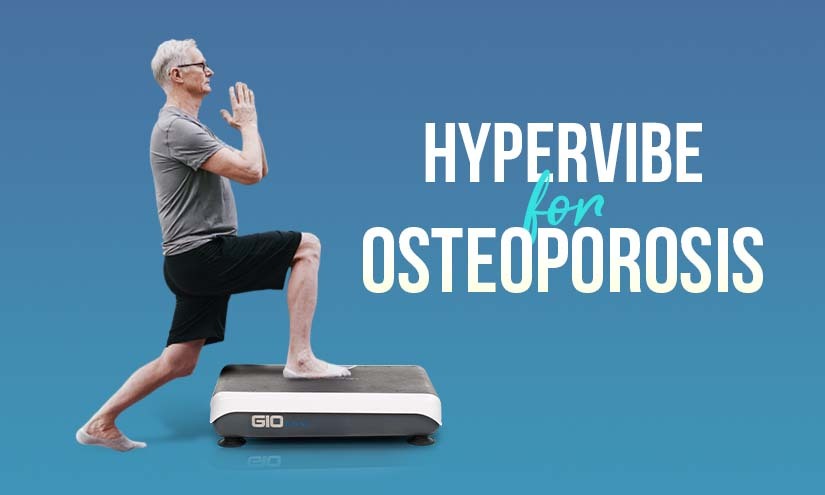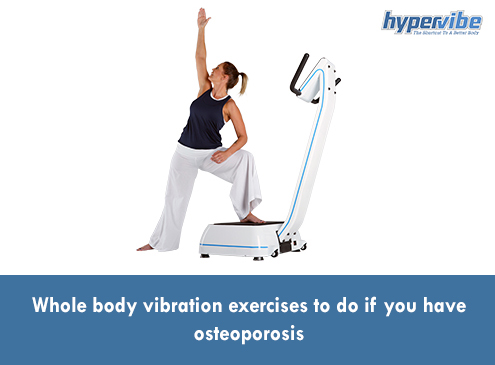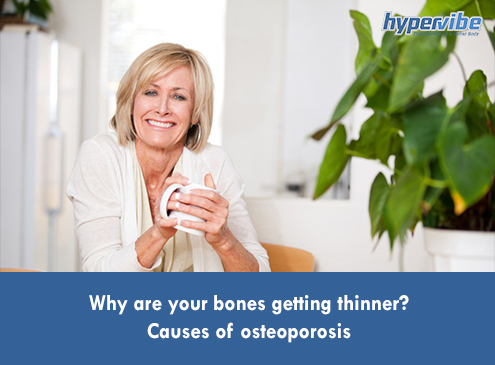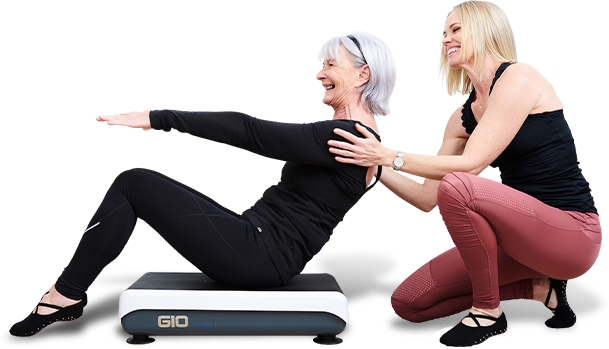Top Supplements for Bone Health: What Actually Works?
Unless you are one of the millions of Americans who have been diagnosed with osteoporosis, you may have never thought how vital your bone health is. After the age of 50, one in every three women and one in every five males will develop osteoporosis. Maintaining healthy bone mass is an important part of aging well. Osteoporosis is a disorder in which bones grow weak and brittle over time, increasing the risk of fractures. If you have osteoporosis, even a minor fall could result in a hip fracture, or a harsh cough could result in a vertebral fracture. These fractures are not only painful and debilitating, but they can also be fatal. In fact, older persons who suffer a hip fracture are three to four times more likely to die within a year than the overall population. There are numerous best supplements for bone health on the market that promise to promote bone density. It goes without saying that bone health entails more than just taking the proper supplements for bone health; nutrition and exercise are equally essential, but these are supplements that have some proof of improving bone density.
What supplement can I take to strengthen my bones?
Calcium
Calcium is the mineral with the highest concentration in the body. It has a significant impact on bone density. To maintain strong bones, individuals should consume a total of 1,000 to 1,500 milligrams of calcium each day, from both food and supplements. Most people get at least 500-600 mg of calcium per day from their diet, thus the remaining 500 to 1000 mg should be obtained through supplementation. Because this is the maximum quantity that may be absorbed in one serving, you should take no more than 500mg at a time. Calcium is available in a variety of forms, the most prevalent of which are calcium carbonate (the same calcium found in Tums) and calcium citrate. Calcium citrate can be absorbed with or without food, however calcium carbonate must be taken with food.
Vitamin D
Vitamin D is a fat-soluble vitamin that acts as a conductor, directing calcium to the bones. Because your body does not know how to deposit calcium into the bone without appropriate vitamin D, even a high calcium intake can contribute to progressive bone density reduction. Based on lab results, it is normally recommended to supplement with vitamin D in the form of D3 at a level of 1,000 to 5,000 IU. You should ideally get your 25-OH Vitamin D level evaluated and aim for a range of 40-70 ng/ml.
Magnesium
Magnesium is the second best supplement for bone health in the human body. It is also a significant component of bone strength. Adults are normally advised to take the best supplements for bone health of 250-400 mg daily. Magnesium glycinate or magnesium gluconate are the most easily absorbed and have less of a laxative impact than magnesium oxide or magnesium citrate.
Vitamin K
Vitamin K is another fat-soluble vitamin that works in tandem with Vitamin D to promote bone health. Vitamin K is available in two forms: K1 and K2. The greatest data suggests that taking K2 as a supplement will improve bone density. Supplementing with Vitamin K2 at a dose of 45 to 180 mcg daily is commonly recommended.
What is the fastest way to increase bone density?
The density of bones changes over time. The bones absorb nutrients and minerals and grow in strength throughout childhood, adolescence, and early adulthood. However, by the late twenties, a person has hit their peak bone mass, which means they will no longer grow bone density. As a person ages, his or her bones may lose density. After menopause, a person is more vulnerable to osteoporosis, a disease that weakens the bones to the point where they might break easily. However, there are numerous methods for increasing and maintaining bone density.
Consuming more vegetables
Vegetables give vitamins, minerals, and fiber while being low in calories. According to one study, vitamin C may help prevent bones from deterioration. Most people can benefit from eating yellow and green vegetables. These veggies enhance bone growth in children and help preserve bone density and strength in adults. According to one study, children who ate green and yellow veggies and avoided fried foods had an increase in healthy fat and bone density. Another study found that eating 9 servings of cabbage, broccoli, and other vegetables and herbs for 3 months decreased bone turnover and calcium loss in postmenopausal women. The researchers attributed the findings to the increase in polyphenols and potassium provided by the vegetables.
Keeping a healthy weight
A healthy weight is vital for bone density – those who are underweight are more likely to develop bone disease, whereas persons who are overweight put additional strain on the bones. People should prevent rapid weight reduction and cycling between weight growth and loss. When a person loses weight, their bone density decreases, but this density does not return when they regain weight. This loss of density can result in weaker bones.
Consuming more protein
Protein is necessary for supplements for bone health and density, and people should make sure they get enough of it in their diet. A study including about 144,000 postmenopausal participants discovered that individuals who consumed more protein had higher total bone density. Participants who consumed more protein had fewer forearm fractures as a group.
What vitamin is good for repairing bones?
Calcium and vitamin D are considered to be the two supplements for bone health for maintaining healthy bones and promoting fracture repair. Milk is an excellent provider of both of these nutrients, but there are also many other foods that can provide them. Supplements for bone health of calcium and vitamin D can be purchased at virtually any pharmacy or grocery shop and are an option for those whose diets do not include them in sufficient quantities.
How can I increase my bone strength naturally?
Strengthening and weight-bearing exercises
Exercise can strengthen bones. Weight-bearing or high-impact exercise increases bone growth and is good for bone health. This activity boosts peak bone growth in youngsters, especially those with type 1 diabetes. It also helps older folks avoid bone loss. Weight-bearing exercise in older men and women increased bone mineral density, strength, and size and decreased bone turnover and inflammation. One study reported no bone density improvement in older men who did the most weight-bearing activity for nine months. Strength-training benefits more than muscular mass. It may also prevent younger and older women with osteoporosis, osteopenia, or breast cancer from bone loss. In men with poor bone mass, only resistance training increased hip bone density.
Consume calcium-rich foods throughout the day
Bone health depends on calcium, the major component in bones. To maintain bone structure and strength, ingest calcium everyday. Most adults need 1,000 mg of calcium daily, but teens need 1,300 mg and older women 1,200 mg. Calcium absorption varies widely. Interestingly, your body absorbs less calcium from meals with more than 500 mg than from those with less. Therefore, include one of these high-calcium foods at each meal to distribute your calcium consumption throughout the day. Calcium is best from diet, not pills. In a 10-year trial of 1,567 persons, high calcium consumption from food reduced heart disease risk, but calcium pills increased it by 22%.
Do vibration plates strengthen bones?
Some variables that contribute to bone health include weight bearing activity, enough vitamin D, and a well-balanced diet. Vibration therapy offers numerous advantages and may help prevent bone degeneration, which is beneficial in the prevention of osteoporosis. Vibration therapy may be a potential supplemental treatment option for patients suffering from osteoporosis, particularly in terms of preserving balance, improving muscle mass, and preventing falls. However, evidence on whether vibration therapy can increase bone density over time is equivocal. High-frequency, low-magnitude vibration therapy enhances bone strength by promoting bone production and lowering bone resorption, according to animal and human research. There is also evidence that vibration therapy can help with sarcopenia, which causes skeletal frailty and falls in the elderly. Increasing skeletal and muscle strength requires managing the differentiation of mesenchymal stem cells, which are used to construct these tissues; vibration signals stimulate mesenchymal stem cell lineage allocation. Sources: https://www.nbihealth.com/bone-health-supplements-what-really-works/ https://www.ironwoodcrc.com/top-5-supplements-for-bone-health/ https://www.healthline.com/nutrition/build-healthy-bones#TOC_TITLE_HDR_5











